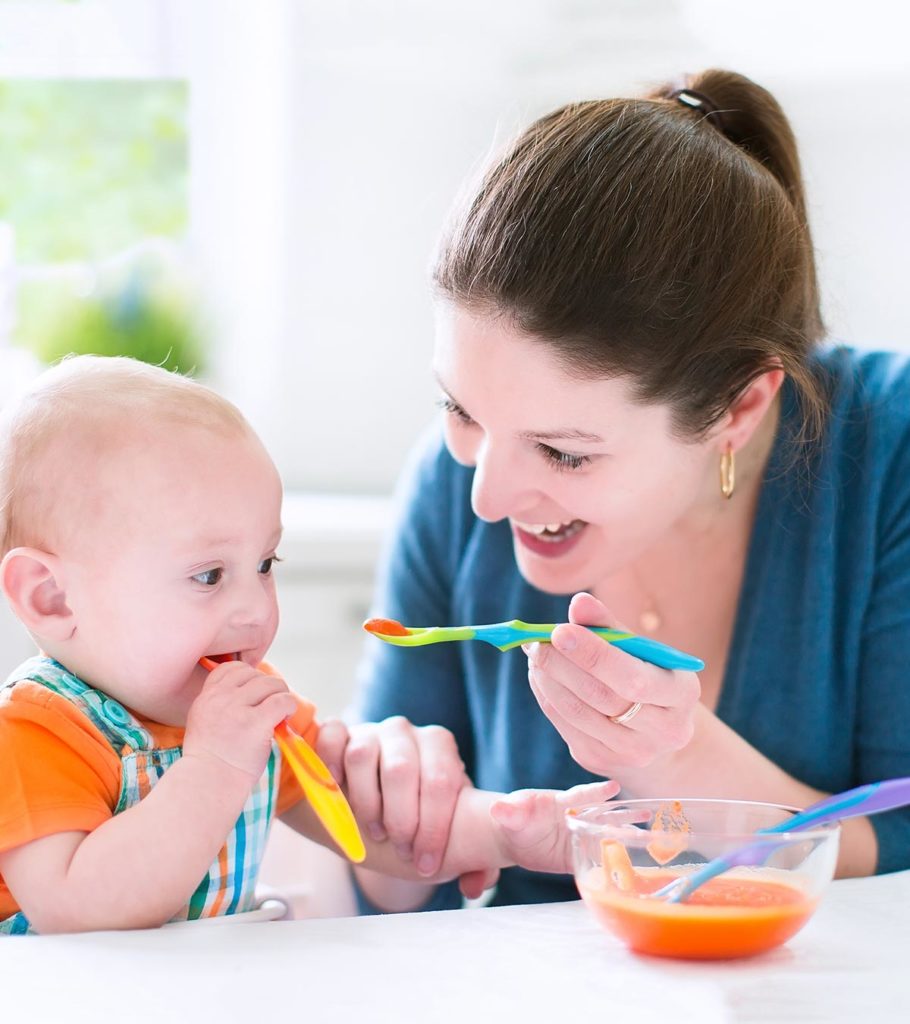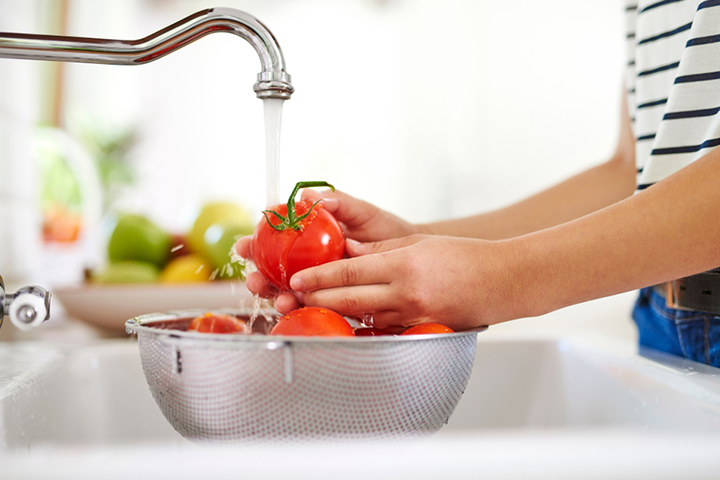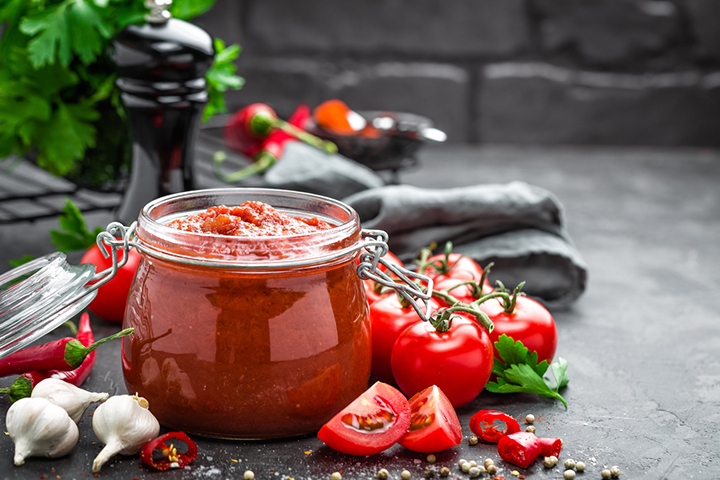Tomatoes are full of nutritious goodness. When it comes to infant nutrition, tomatoes are an excellent choice. This bright red, tangy fruit can be made into tomato puree for babies and included in their diet. Tomatoes are rich in vitamin C and antioxidants that help boost immunity and offer protection from different diseases.
Continue reading this post to learn about the benefits of tomatoes for babies, how to select and store tomatoes, and some points to keep in mind before introducing infants to this fruit. This article also offers an easy tomato puree recipe that you can make at home for your baby.
Benefits Of Tomato
Tomato is a super food for babies because it is a storehouse of nutrients like:
1. Vitamin C:
A medium-sized tomato contains 47% of the daily recommended value of vitamin C. Adequate intake of vitamin C helps boost the absorption of iron in the body and also helps in strengthening the immune system.
2. Lycopene:
Tomatoes are also a rich source of lycopene, an antioxidant that protects the body from a wide range of diseases by counteracting the free radicals in their bodies.
3. Healthy Skin:
A regular consumption of tomatoes also boosts the levels of procollagen, a molecule that will keep your baby’s skin soft and supple.
Selection And Storage Of Tomatoes
There are several varieties of tomatoes available, so it may be a challenge for you to select the best ones for your little one. Avoid purchasing tart tomatoes for making baby food, select sweet tomatoes instead. Cherry and grape tomatoes are best for infants. Additionally, you can even choose organic produce when introducing tomatoes to babies to minimize their exposure to potentially harmful pesticides and fertilizers.
Purchase fresh, firm and blemish-free and bruise-free tomatoes for making baby food. If possible, get tomatoes from a kitchen garden. They taste amazing and remain fresh for a long time. If you cannot find ripe tomatoes, then ripen the tomatoes by placing them in a sealed paper bag with a banana. It is important to store tomatoes at room temperature away from sunlight and not in the refrigerator. Ripe tomatoes will last for a couple of days at room temperature.
Tomato Puree For Babies
Rich in nutrients and easy to digest, tomato vegetable puree is an excellent choice for introducing babies to new flavors and textures. If you’re looking for a tasty and nutritious homemade meal for your child, consider making tomato soup using this simple, healthy recipe.
You Will Need:
Three ripe tomatoes
Salt (a pinch only if the baby is above one year)
Pepper Powder
One Teaspoon of chopped mint leaves
How To Make:
- After washing and cleaning the tomatoes, peel the skin of the tomatoes and place them in a pan. Add two cups of water into the pan.
- Add the chopped mint leaves, salt, and pepper powder.
- Boil the tomatoes for ten minutes until they are tender.
- Turn off the flame and keep the tomatoes aside to cool.
- Transfer it to a mixer and blend it.
- Sieve the mixture and serve the soup to your child. Make sure the soup you serve your baby is not very hot.
Points To Remember:
Wait until your child is eight months old before introducing vegetables and fruits in his diet. Health experts advise the mother to breastfeed the child until he is at least six months old.
Doctors do not recommend tomatoes for babies before 10 to 12 months of age. The high alkaline content in tomatoes may be harsh for an infant’s tummy. It may cause stomach upset and even rashes around the mouth. Therefore, during the weaning stage, it is advisable to avoid using tomatoes as one of the first foods for your little one.
Raw tomatoes are more likely to cause these reactions as cooking reduces its acidity. Tomatoes fed to the baby, after all the considerations, should be in the semi-liquid or puree form.
If you are introducing your baby to solid foods, add a new food item after every five days. It will help you keep track of food intolerance and allergies.
Do not introduce salt to your baby’s food in his first year. Infants need less than a gram of salt per day until they are a year old.
Doctors recommend waiting until your baby is eight months old before adding spices to your baby’s diet.
Filter the water before using it to wash the fruits and vegetables for cooking your baby’s meals.
Tomato puree for babies is tasty, easy to make, and offers them a wide range of health benefits. The tangy vitamin-rich vegetable helps promote healthy skin and immunity. Always choose fresh and ripened tomatoes to feed your baby. While preparing a puree, you may add mild flavors as per your baby’s age and taste preferences to make them drool over it. However, it is wise to speak to a pediatrician before introducing solid foods or soups such as tomato soup to your little one.
Key Pointers
- Tomatoes contain vitamin C and antioxidants that support immunity and disease prevention.
- The lycopene pigment in tomatoes also counteracts free radicals to protect the body from harmful ailments.
- Regular intake of tomatoes improves skin health by increasing procollagen levels.
- Introduction of tomatoes to babies is best to be delayed until 10-12 months.
- High alkaline content in tomatoes may result in digestive discomfort and rashes in babies.













